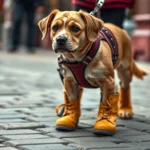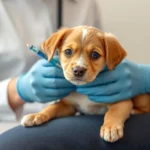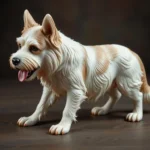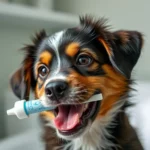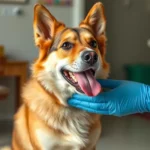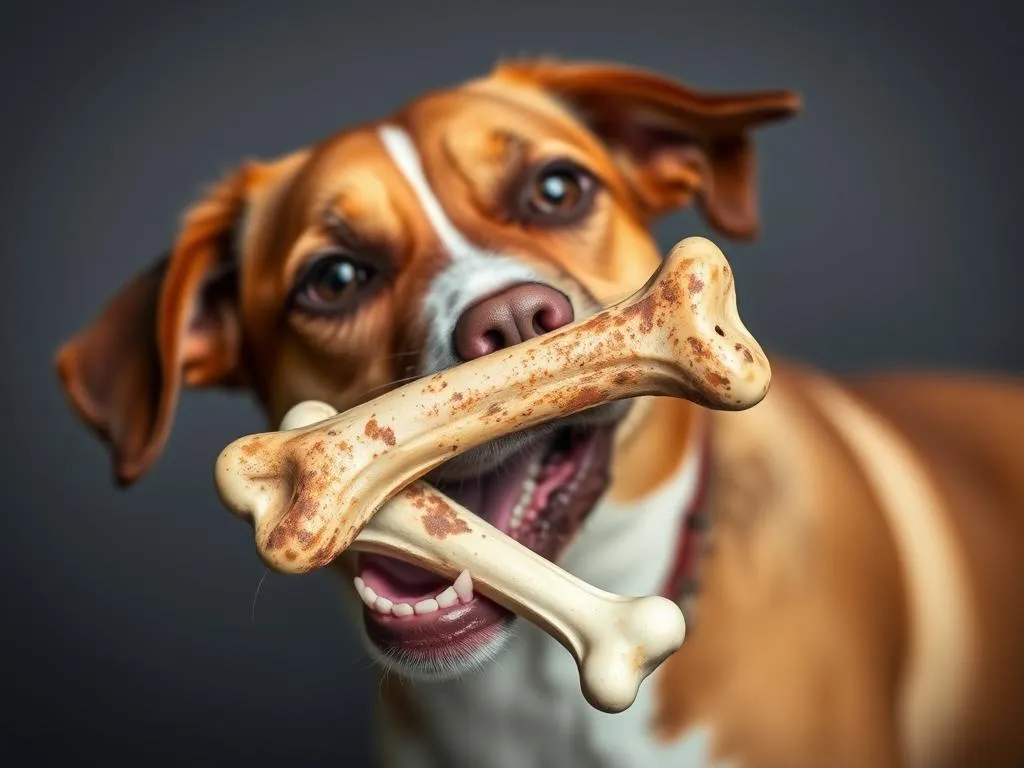
Introduction
Maintaining a dog’s health is essential for their well-being and longevity. Dogs are susceptible to various health issues, from obesity to dental problems, and proactive care can prevent many of these conditions. One area of focus for many pet owners is their dog’s chewing behavior, particularly when it comes to aggressive chewers. Understanding the needs of aggressive chewers is crucial in selecting appropriate chew toys and bones, which can help maintain their health while satisfying their natural instincts.
Chewing is a fundamental behavior for dogs; it helps them relieve stress, stay occupied, and maintain dental hygiene. However, aggressive chewers present a unique challenge, as they have a tendency to destroy toys and bones quickly, which can lead to health complications if unsuitable items are given. In this article, we will delve into the characteristics of aggressive chewers, the importance of chewing for dogs, criteria for selecting the right dog bones, and ultimately, the best dog bones for aggressive chewers.
Understanding Aggressive Chewers
Characteristics of Aggressive Chewers
Aggressive chewers are dogs that exhibit a strong inclination to chew vigorously, often resulting in the rapid destruction of toys and bones. This behavior can stem from various factors, including breed tendencies, anxiety, or simply a desire to explore their environment. Common traits of aggressive chewers include:
- Persistence: They will chew relentlessly until the item is destroyed.
- Strong jaws: Many aggressive chewers possess powerful jaws that can break softer materials easily.
- High energy levels: These dogs often have a lot of pent-up energy, leading them to chew as a means of release.
Understanding these traits is essential for pet owners to select suitable chew items that can withstand their dog’s chewing habits.
Health Implications
Aggressive chewing can have several health implications for dogs. One of the most significant concerns is dental health. Chewing on inappropriate materials can lead to broken teeth, gum injuries, and various dental diseases. Additionally, aggressive chewers are at a higher risk of gastrointestinal issues, especially if they ingest large pieces of toys or bones that can lead to blockages or tears in the digestive tract.
Choosing the right chew items is critical to preventing these health complications and ensuring a safe chewing experience.
Importance of Chewing
Natural Instincts
Chewing is a natural and instinctive behavior for dogs. In the wild, dogs chew to break down food, clean their teeth, and relieve boredom. For domesticated dogs, chewing can also provide comfort and reduce anxiety, particularly in stressful situations or when left alone. Proper chew items satisfy this instinct and help keep dogs engaged and mentally stimulated.
Benefits of Chewing for Health
The benefits of chewing extend beyond mere entertainment:
- Dental Hygiene: Chewing can help reduce plaque and tartar buildup, promoting better oral health.
- Mental Stimulation: Chewing engages a dog’s brain, helping to alleviate boredom and prevent destructive behaviors.
By providing appropriate chew items, pet owners can ensure their dogs enjoy these benefits while maintaining their overall health.
Criteria for Choosing Dog Bones
Safety Considerations
When selecting chew items for aggressive chewers, safety should be the top priority. Here are some factors to consider:
- Size and Shape of Bones: Bones should be appropriately sized for your dog to prevent choking hazards.
- Ingredients and Sourcing: Always choose bones made from high-quality, natural ingredients. Avoid bones treated with harmful chemicals or preservatives.
Durability and Texture
The durability and texture of chew items are crucial for aggressive chewers. The hardness level should be suitable for their chewing strength.
- Hardness Levels: Look for bones specifically designed for aggressive chewers, which are often made from tougher materials.
- Comparison of Natural vs. Synthetic Options: Natural bones, while generally more appealing to dogs, can splinter. Synthetic options may provide more durability but can contain artificial ingredients.
The right balance between safety and durability is essential to ensure a satisfactory chewing experience without compromising health.
The Best Dog Bones for Aggressive Chewers
Natural Bones
Natural bones, such as beef or bison, are popular choices for aggressive chewers. They offer several advantages:
- Flavor: Dogs love the taste of natural bones, making them more likely to engage with them.
- Nutritional Value: Many natural bones contain nutrients beneficial to dogs.
However, there are also some downsides, such as the risk of splintering and the potential for mess. Always supervise your dog while they chew natural bones to ensure safety.
Commercial Chew Toys
There is a wide range of commercial chew toys specifically designed for aggressive chewers. Brands like Nylabone, KONG, and Benebone offer durable options. When selecting commercial chew toys, consider the following features:
- Durability: Look for toys made from tough materials that can withstand rigorous chewing.
- Shape and Size: Choose appropriately sized toys to prevent choking hazards.
Commercial chew toys can be a great alternative to natural bones, providing both durability and a safer chewing experience.
Homemade Options
For those who prefer to make their own chew items, there are several safe homemade alternatives. These can include:
- Frozen Peanut Butter Treats: Mix peanut butter with mashed bananas and freeze them in a Kong toy.
- Carrots or Sweet Potatoes: These can be given raw or cooked and provide a healthy chewing option.
When creating homemade options, ensure that the ingredients are safe for dogs, and avoid any harmful additives.
Tips for Maintaining Dog Dental Health
Regular Dental Care
Maintaining your dog’s dental health goes beyond providing chew items. Regular dental care is essential:
- Brushing Your Dog’s Teeth: Regular brushing can significantly improve oral health. Use toothpaste specifically designed for dogs.
- Recommended Dental Care Products: Consider incorporating dental chews or water additives to promote cleaner teeth.
Establishing a routine for dental care can help prevent severe dental issues down the line.
Monitoring Chewing Habits
Keeping an eye on your dog’s chewing habits is essential for ensuring their safety. Here are some tips:
- Gauging Hardness: If a bone is too hard and your dog struggles to chew, it may be too tough and could risk dental damage.
- Signs of Trouble: Watch for signs like excessive drooling, reluctance to chew, or broken teeth, which may indicate dental issues.
Being proactive can help catch any potential problems early before they escalate.
FAQs About Dog Bones for Aggressive Chewers
Common Questions
What are the best types of bones for aggressive chewers?
The best bones for aggressive chewers are those specifically labeled as durable or designed for strong chewers. Look for options made from hard rubber, nylon, or tough natural bones, such as beef or bison.
How often should I give my dog a chew?
The frequency can depend on your dog’s chewing habits, but generally, providing a chew every few days can be beneficial. Always monitor their chewing time to avoid overconsumption.
Safety and Health Concerns
Are there any bones I should avoid?
Yes, avoid small bones that can splinter, cooked bones, or any bones that may pose a choking hazard. Always opt for items specifically designed for chewing.
How can I tell if my dog is having trouble chewing?
Signs include reluctance to chew, whining or pawing at their mouth, excessive drooling, or sudden changes in chewing behavior. If you notice these signs, consult your veterinarian.
Conclusion
Choosing the right bones for your dog is critical for their health and well-being, especially for aggressive chewers. By understanding their chewing behavior and selecting appropriate chew items, you can help maintain their dental hygiene, relieve boredom, and provide them with a satisfying outlet for their instincts. Prioritizing dog health care is essential for every pet owner, and being attentive to your dog’s chewing needs will lead to a happier, healthier life for your furry friend. Always remember that monitoring and adapting to your dog’s chewing requirements is a vital part of responsible pet ownership.
